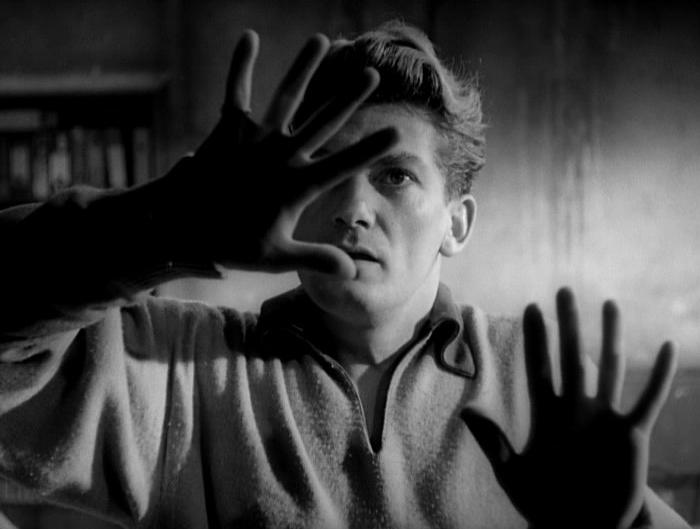Salvador (1986) Directed by Oliver Stone
Usually I tell people that you really have to see a movie in a theatre to get its impact, both visually and dramatically. I think this is almost entirely true, and as valid for small, personal films like
Revanche,
Moonlight and
The Double Life of Veronique as it is for cinematically splendiferous works like
Gravity,
The Assassin and
2001: A Space Odyssey. But there are always exceptions and it turns out that
Salvador is an one of them. Seeing
Salvador on big screen is deceptive. In the movie theatre
Salvador was all busy action, explosions, arguments, wild gestures, and noise, much of it provided by James Woods and Jim Belushi with John Savage acting in a totally different style than everybody else. As I remember it, when I first saw it, the movie was overwhelming and a bit intoxicating.
Salvador on a small screen now seems overdirected (too much cacophony, not enough time for contemplation)
and underdirected (Jesus, Oliver, reign those actors in a little), unsubtle and shallow. What it looks like, I guess, is an Oliver Stone movie, and maybe over the years he has just worn me out.
I'm convinced that James Wood is either a genuine sleazy, hard-to-take guy, possibly with lice, or one of the greatest actors in the world. If he is a really nice, soft-spoken guy, then my apologies--I have underrated his genius. But if he is anything like he seems, I'd be very careful what movies I would pick him to be in. He is as much as an inveterate scene stealer as any of the great hams in film history. Lionel Barrymore and Charles Laughton got nothing on this guy. Whether it be physical ticks, shifty eyes, crazed energy, or that voice, he attracts the attention of the camera like a dead cow attracts maggots. This is his BIGGEST performance and it is simultaneously impressive and awful, no doubt encouraged by Stone, no stranger to wretched excess himself. One of the things about that performance that I noticed this time is that it put Jim Belushi's performance in not very favourable contrast. The mistake that Belushi makes is trying to keep up with Woods. Where Woods has several different ways of doing the same basic thing, Belushi has none. He isn't even a one-note actor, so sharing the screen in close proximity to Woods only exposes him as amateurish. Again, the small screen actually made this contrast appear worse than it did on the big screen where initially I was getting caught up in so many other things. Then, from a totally different universe, there is John Savage, who has made such a fetish of understatement that he allowed himself to become a living, breathing oxymoron: ostentatiously subtle. How far can you go using a squint to communicate intelligence? Not very far.
All of this stuff distracted from the expose that Stone was trying to communicate. With the exception of the girl friend (Elpedio Carrillo, who provides the film with its most naturalistic and guile-free performance), central Americans only really fit in this movie as over-the-top bad guys. With Woods sucking all the oxygen out of the film and Stone pointing fingers in all the already obvious places, there is not much time for contemplating the real victims of these misadventures who seem little more than collateral damage in this film. Stone seems like a Big Picture guy--I'm not sure he cares about the victims as much as he just wants to call out the United States for its treachery.







